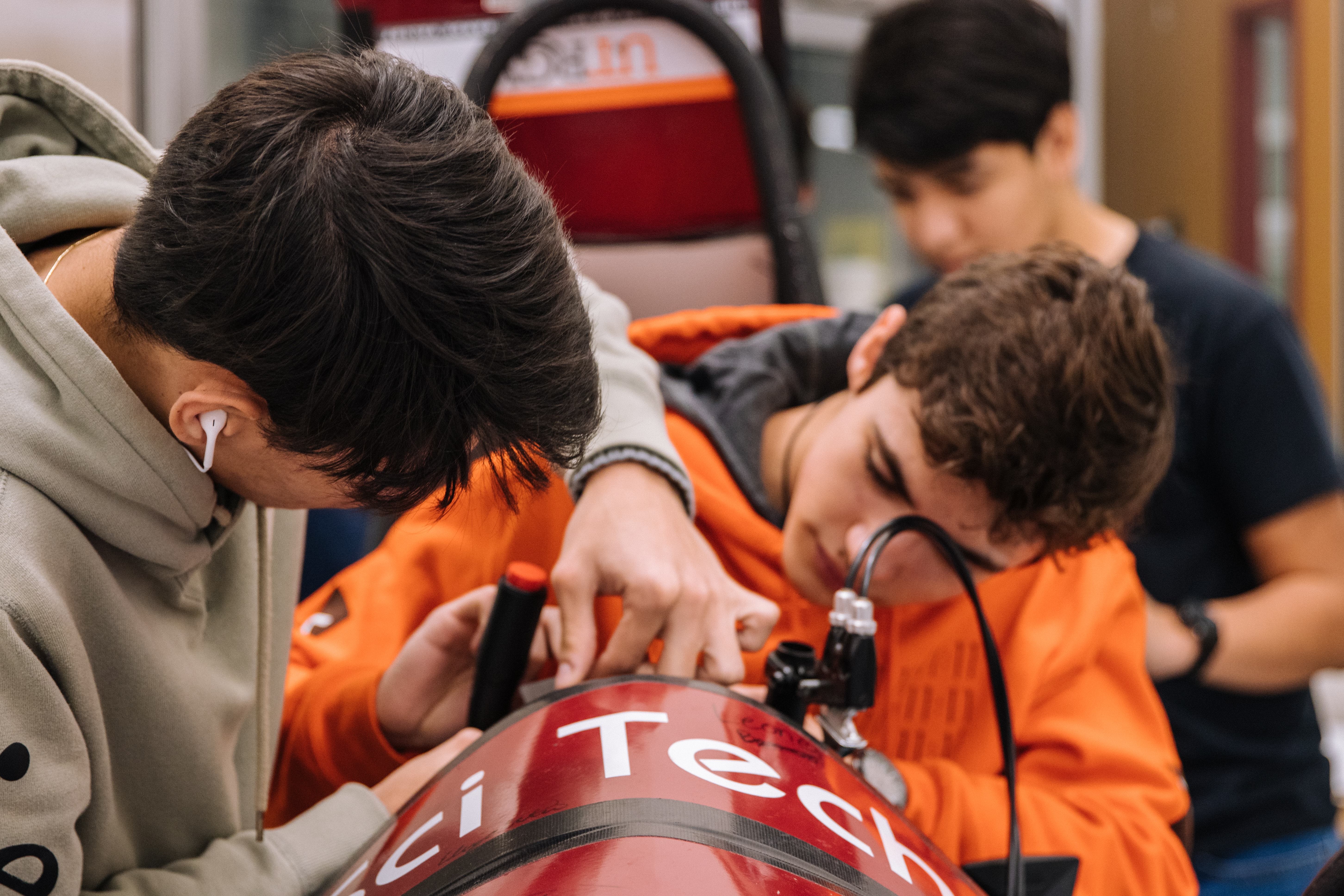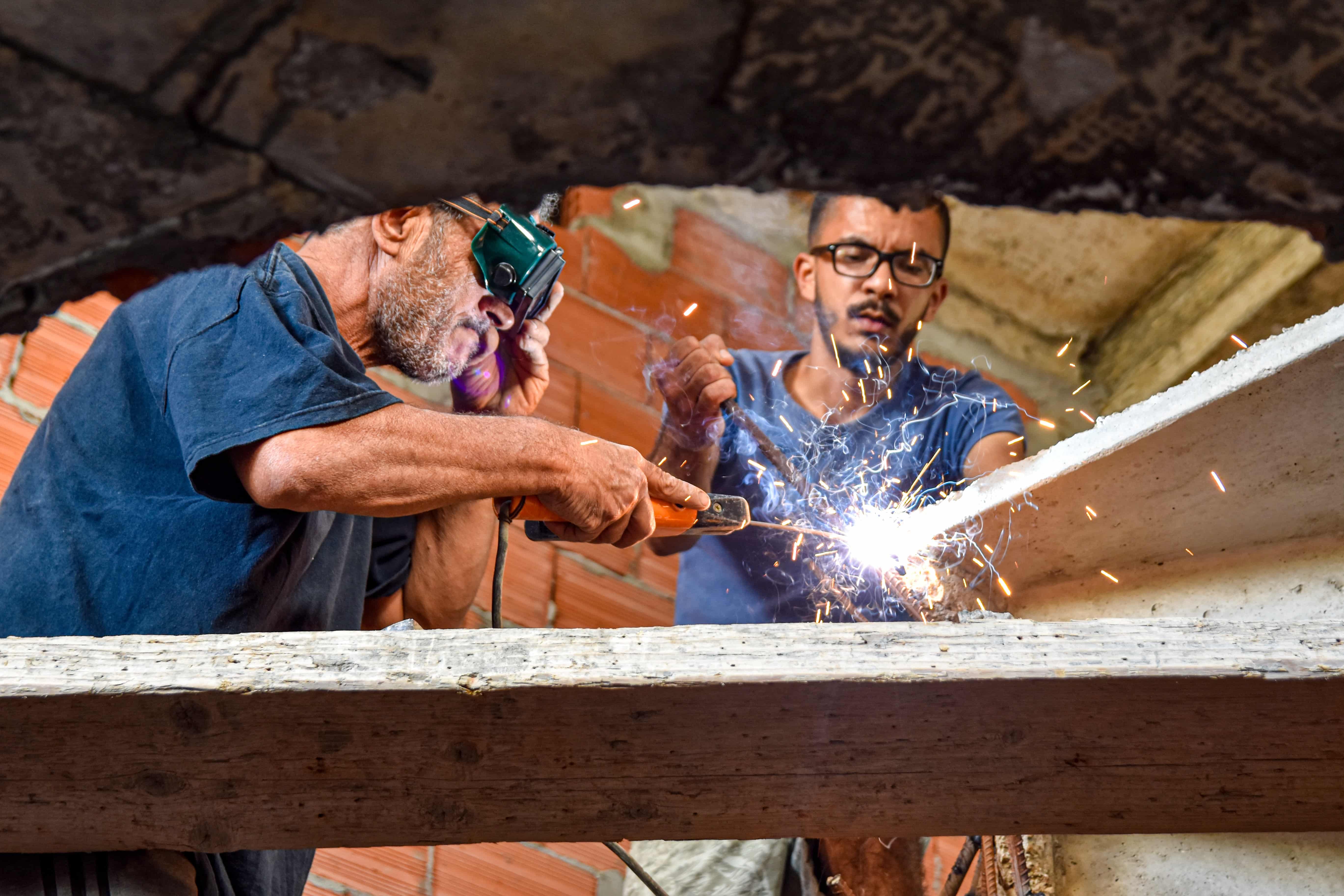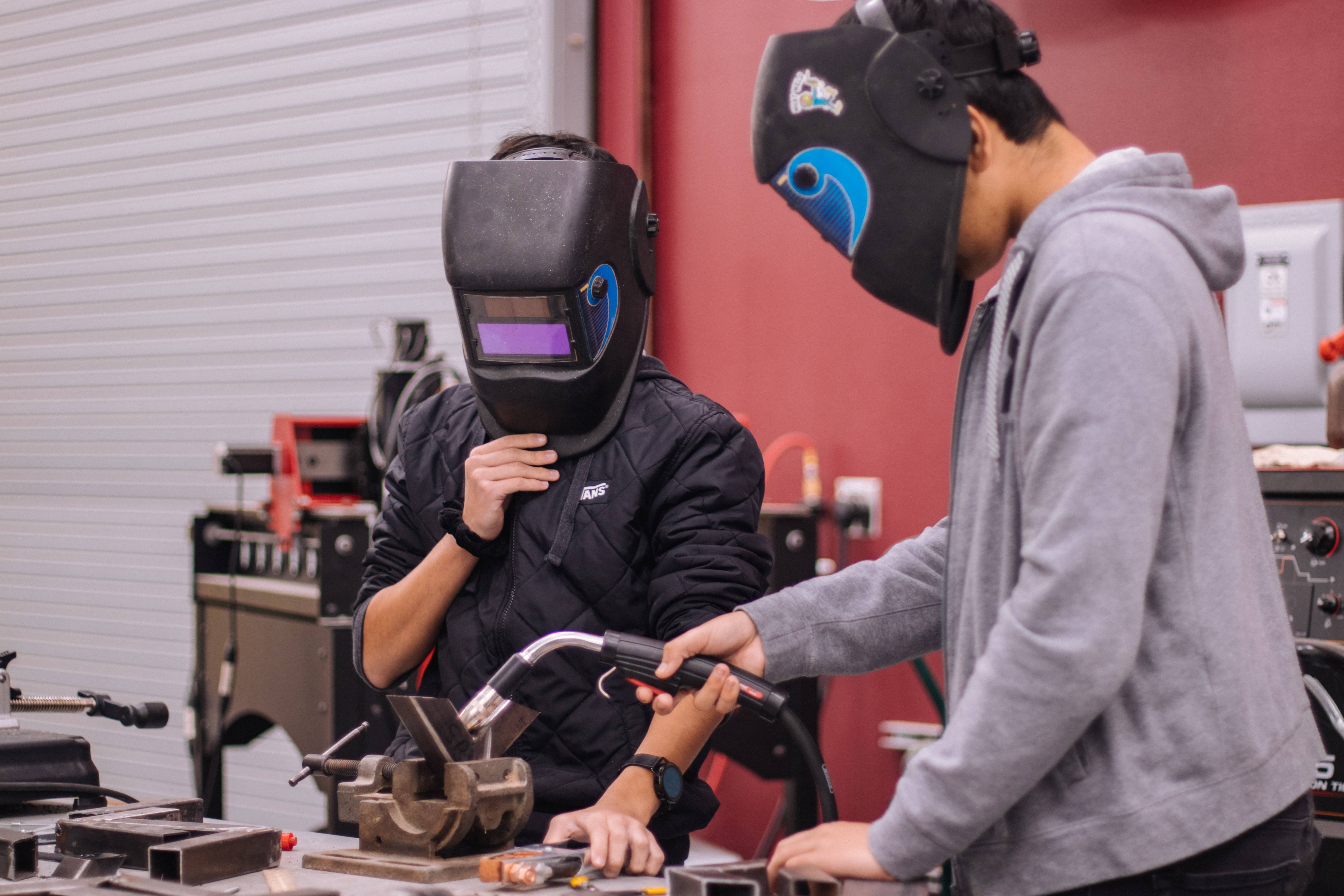A skilled trade is a type of job that requires special skills, abilities, or knowledge that is generally hands-on tasks. Some people go to university, get a certification, or do an apprenticeship to learn the skill and perform it to gain profit and make a living.
Skilled trades are known for being jobs that offer an alternative to jobs that require a university education.
The words "skilled trades" refer to a wide umbrella of options in different fields and industries. You can learn anything from construction, medical work, plumbing, electrician, and more. Depending on the industry of interest, your job can be very different.
For some of these occupations, you'll need special training, different type of education, experience in different services, and more.
Keep in mind that some jobs are in higher demand than others, which means that some pay more than others. It all depends on how each job is affected by current economic issues.
For instance, trade skills saw a rise during 2020 due to the pandemic, and continue to be an industry with a high need for workers.
Skilled trades are typically divided into three categories. The first one is industrial trades, which means anything that has to do with mechanics (you could become a technician). Then there are construction trades that are divided into plumbers, electricians, carpenters, and more. Finally, there are service trades that include nurses, aides, service technicians, and so on.
In this article, you are going to learn how to commence your career in skilled trades when it is important to get a diploma, what alternatives you have to school, and more.

Where should I get started?
Getting started is probably one of the hardest steps in any job, business, apprenticeship, program, or career. The first step is what will set a precedent for the rest of your career.
This is why most people are scared of taking that first step and often don't even pursue their dreams because they don't know where to get started.

To pursue a career in this area you first need to do extensive research on the different jobs, opportunities, skills needed, services available, what each job will require, and so on.
If you already have a skill or knowledge of certain commerce, then you can start by looking into the different opportunities in the industry.
For instance, if you had AP Biology in high school and you enjoyed the class, you could consider going to nursing school. Nursing is a type of skilled trade within the medical branch.
Another example would be if you did an apprenticeship or a certification as an electrician or technical worker. You could get started by investigating what kinds of jobs you could apply for with that certification and see how you could continue to grow your career.
You can find your calling by paying attention to the things you like to do. Do you like to repair things? Are you more into physical labor? Do you have a curiosity about the medical field or the plumbing area?
Answering all of these questions and continuing to question other things will get you closer to your answer. Keep in mind that having experience or background in an area shouldn't be a limitation for choosing something.
For example, if you want to go into the best college and learn something in construction but you don't have any background knowledge, you can always hire a tutor to help you get any prerequisite or knowledge you'd need for school.
A tutor can help you get the specific qualification you'd need for your desired skilled trade. You can search for a tutor right here on Superprof by adding the subject you're interested in learning and your location. Keep in mind that you can also find online tutors on Superprof.
Should I get a degree?
Once you decide what trade you are interested in, you can look into the requirements your field of choice needs. There are many skilled trades that'll require having a college diploma to work in that field.
For example, if you want to become a nurse you have to go to a nursing academy and get a diploma. There are many ways you can obtain your degree, but it is necessary that you go through a less intensive medical school.
Getting a diploma depends on the skilled trade you want to learn and pursue. You may need a bachelor's diploma for management-level careers in this area.

Getting or having a bachelor's diploma will improve your resume and will qualify you for a better-paying job. Typical job titles for workers with this degree include foreperson and superintendent.
Without any prior experience, it takes around eight semesters to obtain a bachelor's diploma. However, students who have an associate's diploma or major college credits finish their studies in one to two years.
Proof of high school graduation, FAFSA results, and recommendation letters are frequently needed for admission.
You can work with career and academic advisors to choose a major aligning with your career goals, such as management.
Organizational behavior, values-based leadership, and corporate ethics are common courses for management bachelor's degrees. The abilities these classes stress can be used to take on new duties, such as managing staff.
According to NCES, the cost of a bachelor's diploma in the 2020–2021 academic year exceeded $19,000. Public institutions of higher learning could be less expensive.
If you're still on the fence about what job to go into, you can always check out what skilled trades are most in demand.
Are there other options apart from school?

Many people believe that one of the advantages of skilled trades is that you don't necessarily need to go to a 4-year program. Going to an educational institution and getting a diploma is very important for many other jobs and fields but that is not the case for every skilled trade.
Depending on your choice, you can opt to get a certification in construction, attend a program for all kinds of students, or go into an apprenticeship.
Apprenticeships are a system for training a new generation of practitioners of a trade or profession with on-the-job training and often some accompanying study.
One of the most important things in any type of work is experience, especially for skilled trades. Becoming a true worker comes after some time in the same area. You can't expect to do a couple of apprenticeships per year and become an expert technician overnight.
Keep in mind that once you understand what exactly are skilled trades, you can then move forward and take steps toward starting your career.
Another option aside from formal education is private tutoring (which is a type of apprenticeship). You can have a personal tutor teach you everything you need to know and navigate the intricacies of your job of choice.
You can search for private tutors right here on Superprof simply by putting the subject of interest and the city where you live. If you want to get started with online lessons, you can add that to the search options.
Good things take time
People tend to be impatient and want to start working without going through adequate programs or processes to become any type of professional.

Many students feel like any of these careers are easy because not all of them need a diploma. However, this is not the case.
Many schools have different programs and alternatives to the 4-year program because they know they have to offer training for all types of careers. This does not mean that as an aspiring professional, you should jump steps and go straight to work for any company without having an educational background.
If you want to repair elevators you need technical knowledge, know-how, the type of labor it is, and much more. You won't dominate all of it in just a couple of months! This is why you need to be patient and work hard.
The best thing to start working is finding someone in a company or who has their own business, to teach you everything you need to know. You can search for tutors
Keep in mind that with more certifications and diplomas you'll be better prepared to do your job which will ultimately make you an ideal candidate for any business or company.
If you stay with basic knowledge and don't reach for more knowledge and preparation, you won't be able to grow your income with the years.
This is why, it is important to maintain a learning philosophy and always search for different methods, new technology, new certifications, and more.
Résumer avec l'IA :










